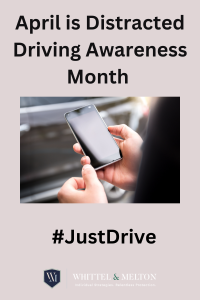Driverless semi-trucks could be sharing Florida highways as early as next year, according to recent reports, and there will be no requirement that surrounding motorists know it.
These autonomous driving systems will not need to be tested, inspected, or certified before being deployed under a new state law that takes effect July 1.
Starsky Robotics, a San Francisco-based startup company that’s been testing its driverless trucking technology in Florida and Texas, has put out a call for job applicants who one day want to pilot big rigs remotely.
Starsky envisions its remote drivers logging onto computers in an office environment to take the reins of its trucks during the first and last miles of their long hauls.
That means the trucks will be on autopilot for the vast majority of their highway journeys.
Driverless deployments should begin in Florida by the end of 2020, Starsky says.
That’s much sooner than 2027, the year consulting firm McKinsey & Company projects fully driverless trucks will be ready to hit the highway.
On Thursday, Gov. Ron DeSantis signed the bill enacting the law in a ceremony at SunTrax, the state’s new autonomous vehicle testing track in Auburndale.
While the law will also open the door for ride-sharing companies such as Uber and Lyft to deploy fleets for commuter use, DeSantis’ signing ceremony was staged in front of a Starsky-branded semi-truck.
Co-sponsored by Rep. Jason Fischer, a Duval County Republican, and Sen. Jeff Brandes, R-St. Petersburg, the new law replaces an existing one that required a human driver be present and able to take over driving chores in autonomous vehicles operating on public property for any other reason than testing.
Brandes, Fischer and other proponents of driverless vehicle technology say automated systems will make transportation safer by removing the potential for human error. Driverless technology proponents envision a day in the not-too-distant future in which most driving becomes automated, freeing commuters to stare into their smartphones or their dashboard video screens.
The safety requirements under the new state law are limited.
Companies will be allowed to deploy their systems with no state inspection or certification.
Owners of autonomous commercial vehicles will be required to carry at least as much liability insurance as the state requires for commercial vehicles driven by humans. Currently, that means a minimum level of $300,000 in combined bodily liability and property damage coverage for trucks with a gross vehicle weight of 44,000 pounds or more, and lesser amounts for lighter vehicles.
Autonomous vehicles used for “on-demand” networks must be covered for at least $1 million for death, bodily injury and property damage, the law states.
Autonomous vehicles also will be required to achieve what’s called “minimal risk condition” — such as coming to a complete stop and activating their hazard lights — if their operating systems fail.
Existing traffic laws requiring drivers to promptly notify law enforcement agencies of crashes and then remain on scene to provide information or render aid will be exempted if law enforcement is notified by a vehicle’s owner or by the vehicle’s automated system.
When asked how Starsky Robotics plans to assure Floridians of the safety of the company’s driverless trucks, Starsky founder and CEO Stefan Seltz-Axmacher said only that the company, founded in 2016, has been working with all relevant authorities, including the Florida Department of Transportation, Florida Highway Patrol, the Florida Turnpike Authority, and those agencies’ federal counterparts.
The company has also developed a “Voluntary Safety Self-Assessment,” based on recommendations from the National Highway Transportation Safety Administration, that will guide how its vehicles will react to unforeseen circumstances.
Starsky this week launched a campaign titled “The future of driverless trucking is not driverless” to attract recruits willing to drive in its fleet of 36 traditional over-the-road rigs before — if they make the cut — transitioning to the autonomous truck side. Those drivers will work at a computer in a fixed location and go home to their families between shifts, the company said.
In Florida, the company will locate its remote drivers at its facility in Jacksonville, a spokeswoman said.
The company currently has three trucks capable of autonomous operation but expects to have up to 25 by next year as it begins removing human drivers. Florida will be among the first states where it will run driverless trucks.
The company completed a seven-mile driverless test on a closed-off rural road near Lake Okeechobee in February 2018. It expects to conduct another test sometime this year, Seltz-Axmacher said.
This new wave of autonomous trucks is propelled by the rapid growth of e-commerce, retailers such as Amazon are busy automating as much of their supply and delivery chains as possible, and shipping is a major cost component ripe for disruption, according to reports.
Keeping drivers on the road for a month at a time has become a huge problem for the trucking industry, where the turnover rate for at large carriers averaged 89 percent in 2018 — two points higher than the previous year, according to the American Trucking Association.
Consumers’ demand for cheap goods and cheap shipping costs means haulers want to pay truck drivers cheap wages. That contributes to a 60,000-driver shortage in the U.S.
Paying someone $50,000 to $60,000 a year isn’t enough to keep them behind the wheel of a truck for a month, so the logic to solving that is to remove a person from the cab entirely.
Florida is not just testing out driverless big rigs. In Clearwater Beach, they are testing out driverless buses. Orlando is testing out a small driverless bus that soon will maneuver around Lake Nona. Driverless shuttles could be cruising Bay Street in downtown Jacksonville very soon. And in just a few months, Gainesville residents will be among the first in the state to travel for free through their town in a driverless shuttle.
Driverless cars, buses, shuttles and semi-trucks are officially upon us and no longer just a thing of the future. These autonomous vehicles have been designed with cameras, sensors, artificial intelligence and algorithms to replace human drivers and eliminate human error, which is one of the leading causes of truck accidents, car accidents and bus accidents across the country. The hope is for these driverless vehicles to operate safer than human drivers, who can become distracted, drunk and careless when behind the wheel.
Much like everything else, nothing is perfect and these driverless vehicles can absolutely find themselves involved in an untimely collision. This will bring a whole new wave of car accident lawsuits, and it will certainly be interesting to see how these claims play out. Just like regular auto accidents between human drivers, driverless motor vehicle crashes will require thorough investigations to determine liability.
Continue reading
 Florida Personal Injury Lawyers Blog
Florida Personal Injury Lawyers Blog





